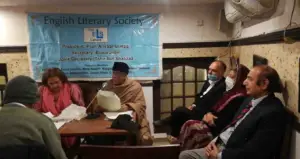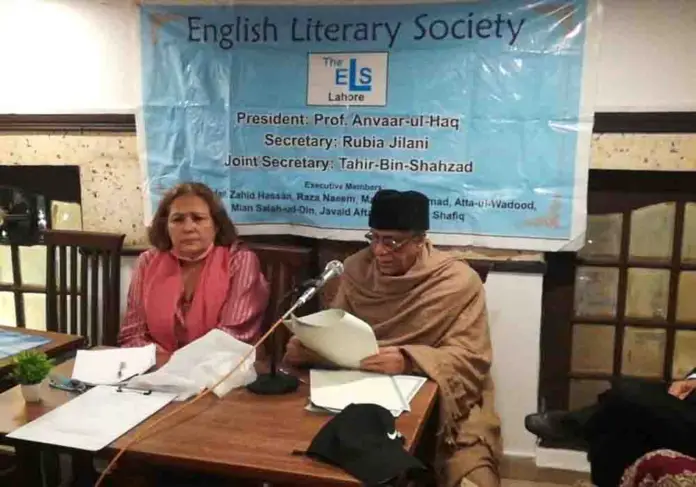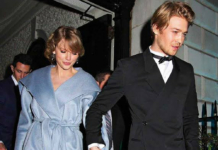As the obsession with physics overwhelms the society, a few wise individuals gather in a circle to summon the mighty subject of literature from the realms of knowledge and arts.
Now, don’t confuse the beginning of this article with a dislike towards science. I simply prefer arts more. Every field requires an upgrade of one’s mastery over it to keep up with the changing demands. The cup of knowledge never fills even if you have a library tattooed within. So, I attended a discussion to add a few drops to my cup while ironically sitting in the Pak Tea house. The leaders of the English Literary Society (ELS) organized a dialogue about the highly intriguing topic, ‘Black Literature.’
The discussion hosted by the secretary and one of the founders of ELS, Rabia Jillani began with a brief self-introduction. I clicked my pen open and began jotting down the points, feeling slightly superior to my batch mates as Jillani mentioned the lack of familiarity with the topic. The discussion continued with the writer reciting her detailed essay on the subject. Consider this article the age of enlightenment for your mental library. Now, let’s test my listening skills.
What is Black literature? Also known as African literature, African American literature, and African British literature, the essay commenced with a few lines about the color black.
According to Jillani’s thorough research work, “Black color stands for law, grief, mourning, protest, and magic. It represents darkness, evil, and hopelessness. Black color is associated with days that bring about calamities since the beginning of time.”
I had never heard such a descriptive explanation of a mere color that signifies the struggles of an entire race. The dedication and passion the research work must’ve required became evident.
The discussion proceeded as Jillani continued sharing.
Black literature reflects the crushed values and culture of a neglected race the world failed to shelter. African individuals, beautifully stitched with a strong thread and dark-skin, were forced into slavery based on their skin color. A complexion keenly designed as a shining armor became grounds for their demise and executions.

Literature is a subject of expression and a type of catharsis for the demonized and the outcasts. The revolutionary words carved themselves into a sword for the defenseless as they were bid upon, bought, and kept in cages for amusement. Developed in the 18th century, the gifted writers and poets shaped their words and made the white-dominated literature theirs. Each verse written as an ode to the bruised ancestors was a homage to the scarred history.
The conversation went on as we hushed the uninterested folks, having a chat with their fellows a few seats behind us. The dialogue resumed about the themes of Black literature as we successfully ignored the disruption. The biography of the black authors has managed to baffle me with their art created through revolutionary works. The undying desire for freedom entirely consumed the poets and became the inspiration behind the brilliant black artists of our time.
I witnessed a similar passionate fire blazing in the sentences pouring from the senior literature enthusiasts and preservers at the small gathering. Quoting ELS President Prof. Anvaar-ul-Haq, “The main aim of the Literary Society is to promote and discuss literature of other nations.”
African American literature revolves around revolutionary pieces, unlike most romance-filled novels and poetry. The preserved works are comprised of the themes of colonialism, liberation from slavery, degradation of Black people, exile, displacement, severe discrimination, forced migration, myths portrayed through rich imagery, forced war recruitments, and spirituality.
The conversation shifted to ELS president and he proceeded to share his point of view. According to him, literature signifies the value of internal beauty and expression of one’s inner self. To Prof. Haq, black people succeeded in making their presence felt through intense poetry with a wide range of themes worth talking about.
The dialogue continued as one of the speakers mentioned a beautiful event of the beloved Hazrat Bilal, a dark-skinned man subjected to slavery, later a companion of the Holy Prophet PBUH, and the first man to give the call to prayer. The severe discrimination was crushed when the sun refused to rise without his strong voice giving Azaan. The goosebumps arose upon hearing the mentioned event.
My time at the discussion was running out as I gathered the courage to ask for my leave from my incredibly gifted seniors. The executive member of ELS kindly stretched out his hand for me to give a read to his piece. I extend a heartfelt thank you to Mian Salah-Ud-Din for helping me cover more despite not being present.
My inferior self felt a shock erupting upon hearing Mr. Salah-Ud-Din’s background. The literature enthusiast is a lawyer by profession and discovered his love for poetry somewhere during his journey. According to his thorough research, the colonial masters nicknamed the Africans denominating their features. The lawyer asks, “Is a person’s race, color, or shape the criteria to label him as superior/inferior?”
The slavery of African Americans used to be a well-paying profession of white colonizers. The colonial-era of Africa speaks of the immense depression that engulfed Africa and shattered its structure. The occupation ripped the brilliant poets like Lucy Terry 1730-1821 (the first known writer of oral African Poetry) of their literature. Their only refuge. Their only ally. The struggles stretched to centuries of endless hatred, genocide, and slavery of Black individuals. The battles for freedom are the ground of current open and colonial-era free African literature. The present-day African poets foster human relationships and universal truths.
After taking my time to snap a few pictures of the needed information, I excused myself and made mental notes on how to share the ocean of rich Black literature with hopes of filling your cup a bit as mine did.







